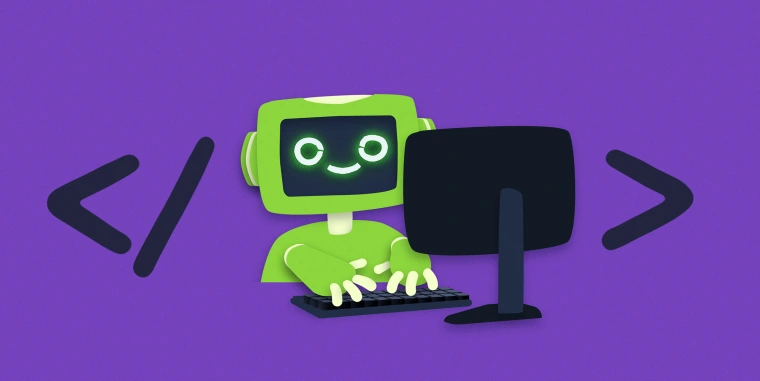The advent of artificial intelligence (AI) has revolutionized various aspects of human life, including education and academic research. In recent years, AI-powered language models, such as ChatGPT, have gained significant popularity due to their ability to generate coherent and human-like text. In this essay, we explore how students can utilize ChatGPT as a valuable resource in their thesis writing process. We discuss the potential benefits, ethical considerations, and practical tips for leveraging ChatGPT effectively, ensuring that it is used as a supplementary tool rather than a replacement for critical thinking and independent research.
Writing a thesis is a challenging endeavor that demands significant research, critical thinking, and effective communication skills. With the emergence of AI-powered language models, students now have access to a powerful tool that can potentially aid them in various stages of their thesis writing process. This essay aims to shed light on how students can utilize ChatGPT, a leading AI language model, to enhance their resourcefulness and improve the quality of their theses.
Overview of ChatGPT
ChatGPT is an AI language model developed by OpenAI. It is based on the GPT-3.5 architecture and has been trained on a vast corpus of text from the internet. The model is designed to respond to user prompts by generating human-like text, making it a valuable resource for students seeking assistance in their academic writing.
ChatGPT has been trained on a diverse range of topics and can generate text in a conversational manner. It has been exposed to a vast amount of information, enabling it to provide relevant insights and suggestions. However, it is essential to note that ChatGPT’s responses are based on patterns it has learned from training data and may not always be accurate or reliable. Hence, critical evaluation and independent research are crucial when utilizing ChatGPT.
Benefits of Utilizing ChatGPT in Thesis Writing
Idea Generation and Brainstorming
ChatGPT can be a valuable tool for generating ideas and brainstorming potential research topics. By providing the model with a prompt, students can receive prompts for research questions, hypotheses, or even suggestions for different angles to approach their thesis.
Literature Review Assistance
Conducting a comprehensive literature review is a fundamental step in thesis writing. As much as ChatGPT can make students lazy, an online courseing expert and founder of OnlineCourseing, Ashkay, stated that when used resourcefully,”… ChatGPT can assist students in identifying relevant sources and summarizing existing research in a particular field. It can save time by providing a starting point and highlighting key concepts or authors for further exploration.”
Writing Support and Proofreading
ChatGPT can help students improve their writing by suggesting ways to enhance clarity, coherence, and grammar. It can offer alternative sentence structures or vocabulary choices, aiding students in refining their expression and making their writing more concise.
Language Enhancement and Stylistic Suggestions
Theses often require a formal and academic tone. ChatGPT can provide guidance on appropriate language usage and offer suggestions for stylistic improvements. It can help students maintain consistency in their writing style and ensure adherence to academic conventions. Just like a blog on StudentCorner, noted, “It is like a smart computer programme that looks at what you’ve previously learnt and uses that information to give you personalised tips and suggestions. It figures out what you need help with and gives you advice on how to improve in specific subject areas.”
Ethical Considerations Regarding ChatGPT
Plagiarism and Attribution
While ChatGPT can provide valuable insights, it is crucial to avoid plagiarism. Students should use the generated content as a reference or a source of inspiration rather than copying it verbatim. Proper citation and attribution are essential to maintain academic integrity and avoid potential plagiarism issues; this is one major way students can improve the quality of their thesis by unique personalization of the references generated from ChatGPT.
Critical Evaluation of Generated Content
As with any source, the content generated by ChatGPT should be critically evaluated. The model might not always provide accurate or up-to-date information. Students should independently verify the information retrieved from ChatGPT and cross-reference it with reputable sources.
Bias and Fairness
AI models like ChatGPT can inadvertently inherit biases present in the training data. Students must be cautious of potential biases in the suggestions or information provided by ChatGPT. It is essential to critically evaluate the content and consider multiple perspectives to ensure fairness and inclusivity in their theses.
Practical Tips for Using ChatGPT Effectively
Clearly Define Your Research Goals:
Before utilizing ChatGPT, students should establish clear research goals and areas where they seek assistance. This helps in formulating precise prompts and obtaining relevant and useful responses.
Use ChatGPT as a Supplementary Tool
ChatGPT should not replace critical thinking or independent research. It should be seen as a supplementary tool that provides insights and suggestions. Students should use ChatGPT to augment their own efforts, not rely solely on its outputs.
Verify and Cross-Reference Information
To ensure accuracy and reliability, information obtained from ChatGPT should be verified and cross-referenced with credible sources. Independent research and fact-checking are crucial to validate the information provided by the model.
Develop a Critical Eye
Students should develop a critical eye when evaluating the suggestions and responses generated by ChatGPT. They should question assumptions, identify potential biases, and assess the relevance and reliability of the information provided.
Practice Responsible and Ethical Use
Responsible and ethical use of ChatGPT involves adhering to academic integrity guidelines, properly attributing sources, and avoiding plagiarism. Students should also be mindful of potential biases and take steps to mitigate them in their research.
ChatGPT offers students a valuable resource to enhance their resourcefulness in thesis writing. By utilizing this AI-powered language model, students can benefit from idea generation, literature review assistance, writing support, and language enhancement. However, ethical considerations and responsible use are crucial to ensure academic integrity and maintain the quality of research. By following the practical tips discussed in this essay, students can effectively leverage ChatGPT as a supplementary tool in their thesis writing journey, ultimately enhancing their resourcefulness and producing high-quality research.







